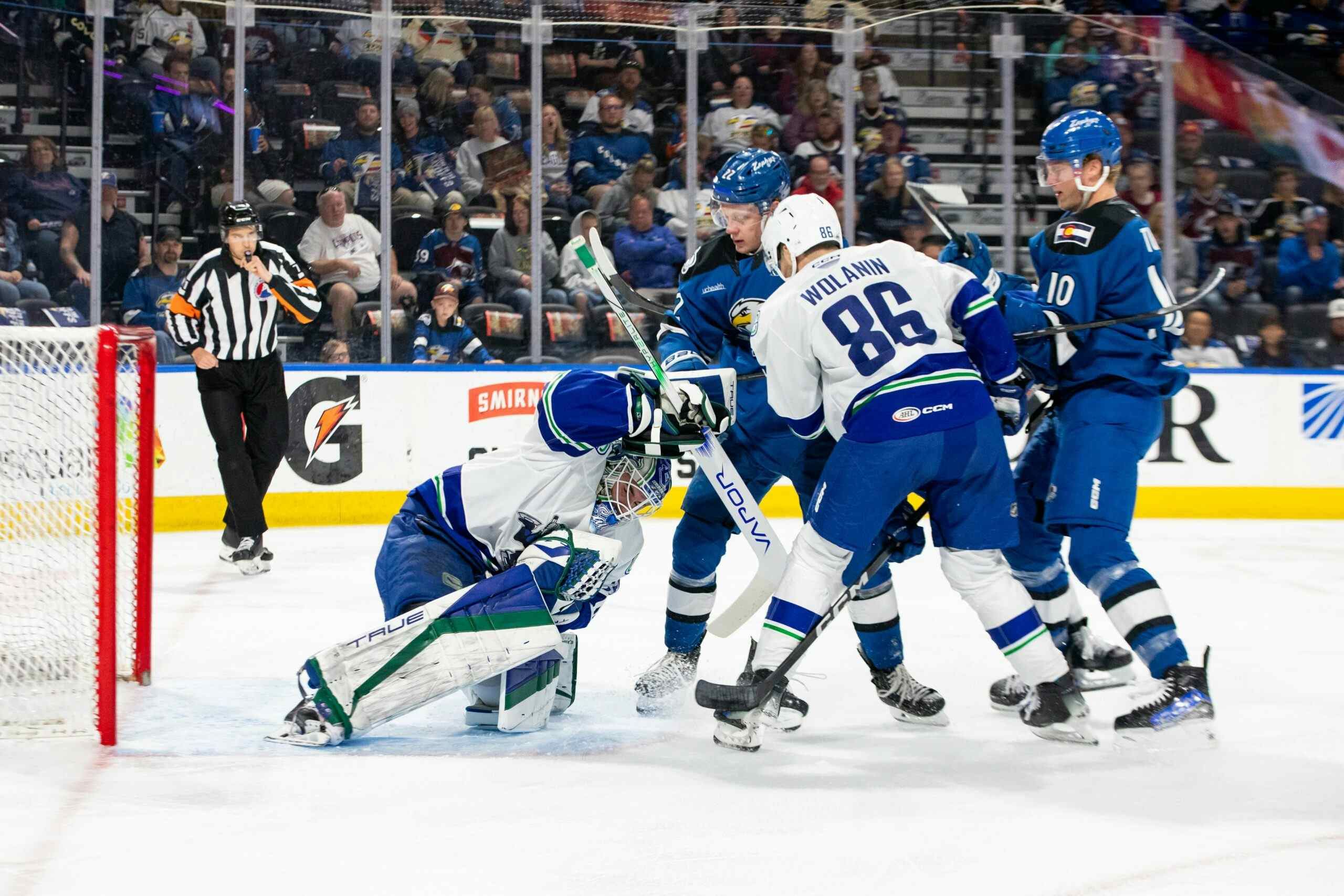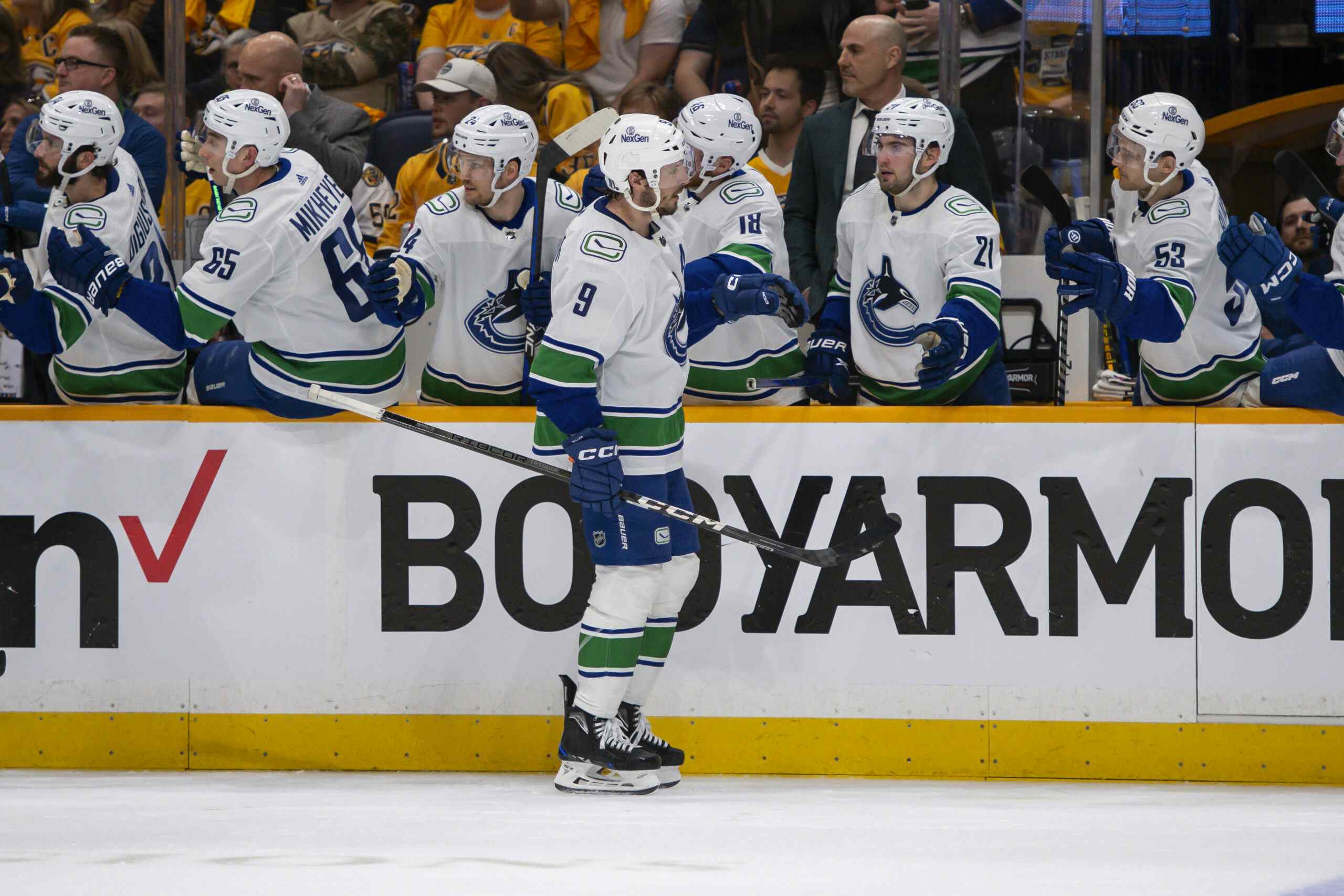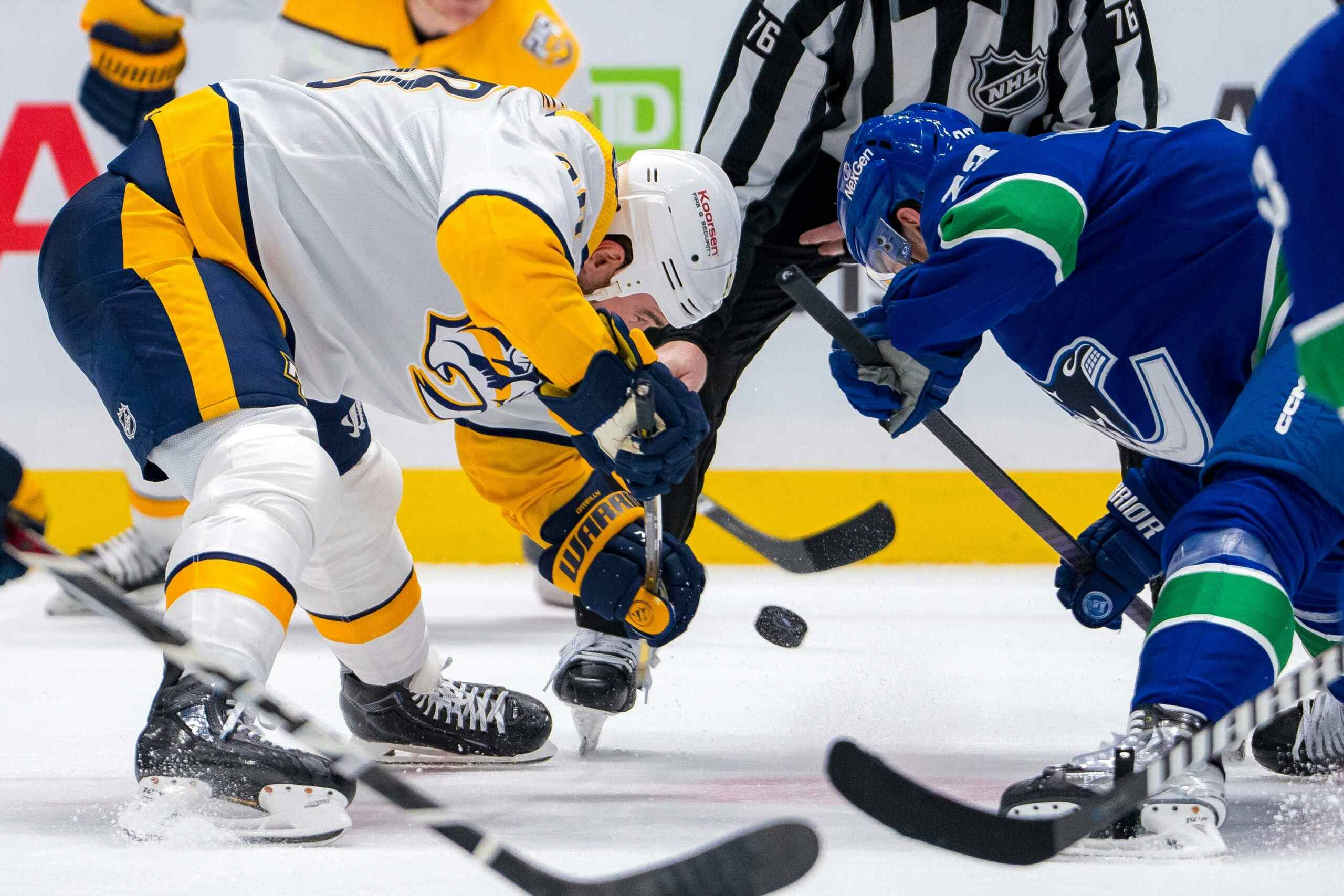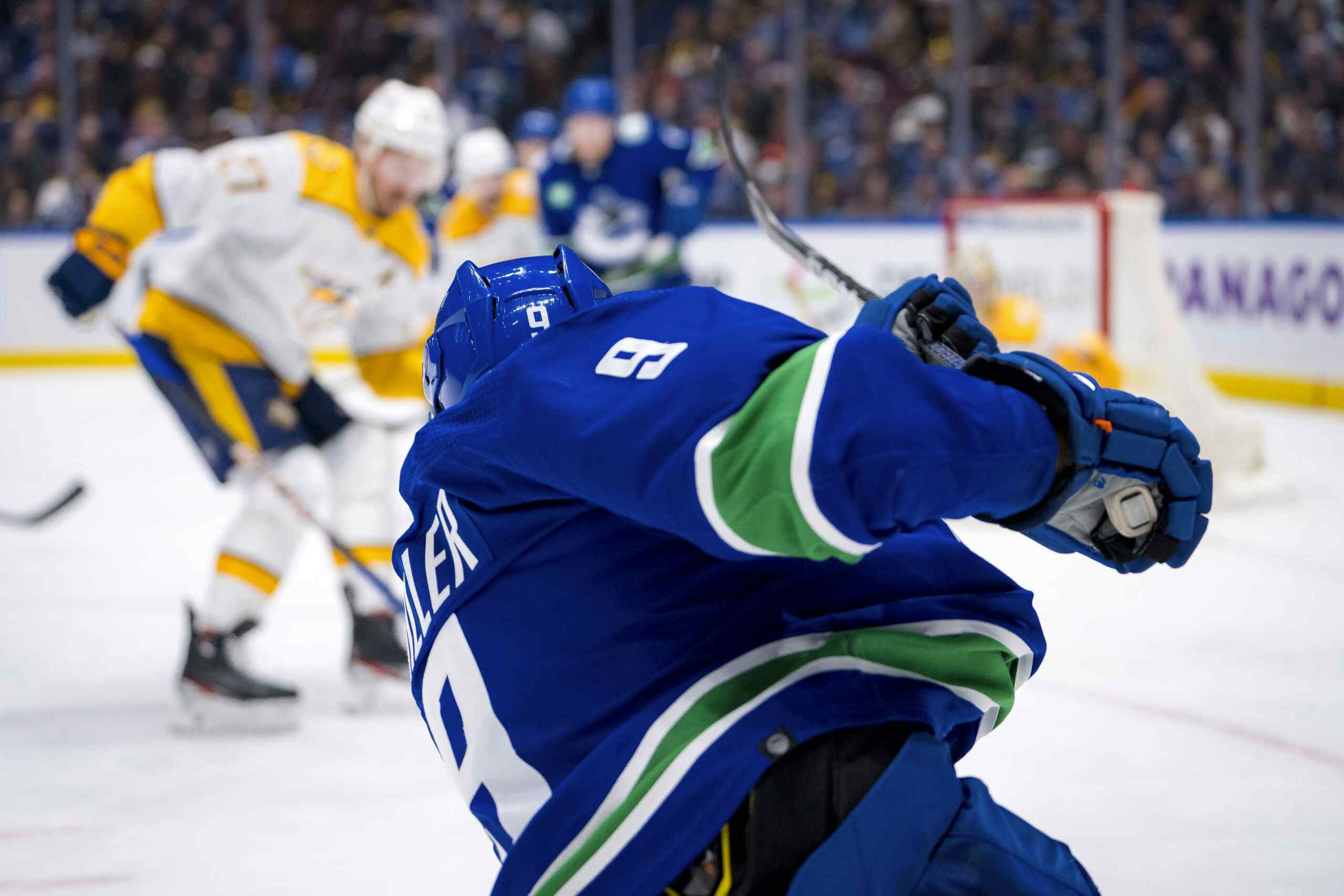Pavel Bure’s Rafter Night in Canada
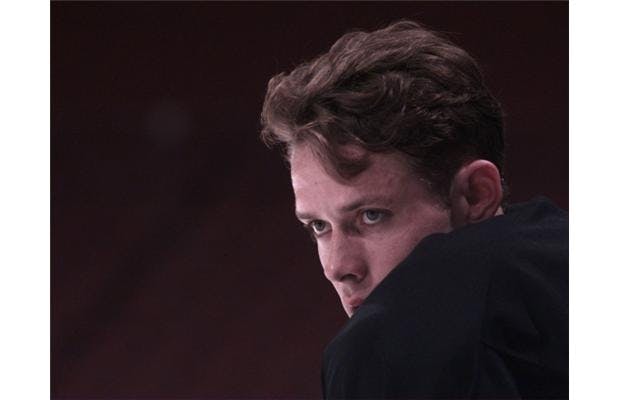
Gerry Kahrman/The Province
Call me nostalgic.
Pavel Bure is the best hockey player I’ve ever seen. The Sedins are close, but that should tell you just how good Pavel Bure was.
He’s the star of my youth.
But there’s no denying that there’s complexity to how we should understand Pavel Bure.
Watching Twitter on Friday was an interesting exercise – there was the Sedins re-signing story, there was the ‘why isn’t Linden going to be there on Saturday’ angle’ and there was the ever-present Bure-centred forgive/forget angle. I’m sure there were others too, but those are the ones that caught my eye.
Tony Gallagher told the tale of how Bure made it into the Hall of Fame. Pat Quinn, now HHOF guru, has talked before about his belief in Bure’s credentials, but Scotty Bowman, the coach of all coaches, said he should be there too. It was impressive.
But what struck me, more than anything, were the things we might have missed. Jim Jamieson wrote about this on Friday, that the picture of Bure as a young man is not one we think of much. It’s an important point; as fans, we tend to look at athletes as these cardboard cutouts, as commodities that can be assessed materially. It’s hard not to, given than the purpose of sport is to win and that each player brings with them a certain set of skills, skills which we look to as something that can be added to a pre-existing whole, in order to improve that whole into something new and better.
It’s like your house – you start with not much, and you keep adding things – furniture, decorations, appliance – which will improve your home life. It makes us feel better.
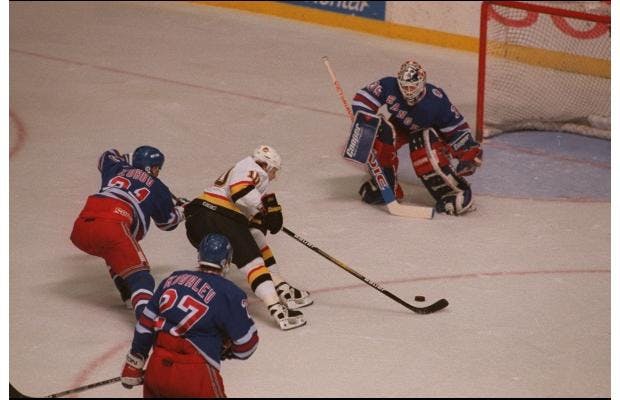
Jon Murray/The Province
It’s the same with sports – we watch sports because they make us feel better. I’ve written about this before, about the emotive reasons behind our fascination with sport, so I won’t dwell on it too much, but there is that feeling of betrayal or disappointment (or sometimes both) that comes with a player leaving your team. That feeling comes from your emotional core, the part of you that just wants to watch the game.
When its a top player, who truly made your team better, it’s an even worse feeling.
When we look back to the summer of 1998 and the winter of 1999, we must remember how controversial Pavel Bure had become. People were angry, at both the team and at the player. The team stunk on the ice. And the front office situation was chaotic. The owner didn’t really want the team, but because he believed in the importance of its viability, he stuck around. But it was hardly a model of success. The team that had seem so powerful, on the brink of something, just a couple years before had been turned upside down and shaken about.
Following Pat Quinn’s dismissal in the fall of 1997, a succession of management schemes followed. Steve Tambellini was nominally in charge, but there was plenty of influence from people above (the new ownership) and below (Mike Keenan). It was a triumvirate doomed to fail.
In hindsight, it’s rather amazing we didn’t see how badly the ship was sinking. Or maybe we did.
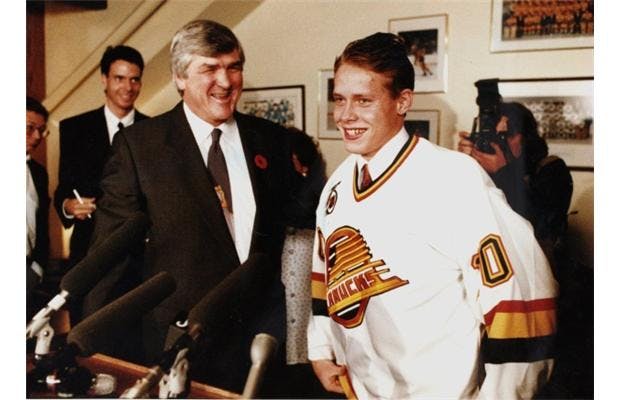
Les Baszo/The Province
But a lot of that context was ignored at the time. All that was focused on was ‘Bure wants out’. Remember, these are the days before free agency was an acheivable dream for most players. Players had few contract rights – they could argue some over the annual value, but the only real weapon they had was denial of services. Many players held out when they were out of contract. They could go to Europe or to the IHL, waiting for the day that their team either came back with a tolerable offer or a trade.
You weren’t an unrestricted free agent until you were 32 years old.
Fans weren’t used to dealing with players not being simply happy to be playing. But with the door opened into the world of multi-million dollar contracts, all of a sudden fans were presented with the truth that playes were people too and they didn’t always just play the game for happiness.
That was (and is) a weird thing to contemplate. Most sports fans when they are kids harbour dreams of ‘making it.’ It’s exciting, the concept of being paid to play a game. (Before this season, Zack Kassian’s eyes lit up when we were talking about the adrenaline rush of the return of hockey season; ‘I get paid to play the best game in the world,’ he told me.)
But hockey players don’t know anything else. This is their job. And they know it. It’s a job that could be pulled out from under them at any time.
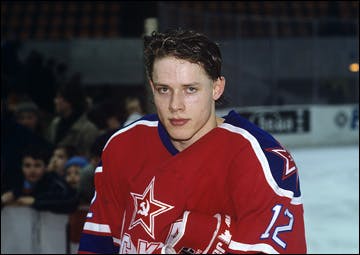
Something that Jamieson mentioned was that Bure was very much a product of the Soviet system. That’s something that is so different from our current realities it’s hard to fathom. It was hard to fathom in 1998 too. The West/East thing was real. Russia is a different place. It informed Bure’s sensibility. It might explain some of his decision-making process in choosing to hold out. Perhaps he was fed up with management. Perhaps he was having struggles in this personal life. Perhaps he was fed up with his teammates. Maybe it was all those and more. Who knows?
In real life, we generally have the choice to quit our jobs and try something new. Sure, there are always mitigating circumstances – kids to fee, bills to pay – but almost every single one of us, should we plan ahead, can find new employment circumstances. Bure had just one.
Yes, he’d signed a contract, commiting himself to a certain period of time to the team; but how many times have people quit their jobs and moved on to new ones. Bure couldn’t just quit his job and find a new employer. In the late 1990s, the NHL was still *it*. There were no tax-free millions to be had in the KHL. This was it. And he knew it.
In the Vancouver Sun, Mike Beamish reminds us of the long-simmering tension that existed between Bure and his father. Vladimir had driven Pavel, had instilled a discipline in his athletic development that surely accounts for much of Pavel’s success. But he was a hard man.
When you read to the bottom, we find something else that Vladimir saw as essential, something he surely would have also instilled in his boys – ‘freedom’. So step back for a moment, consider how limited Bure was in his choices and then think about what he, his father and his brother had gone through to make it to the NHL. Getting out of the USSR was a big, big deal. Being told he had little choice in his employers, it’s hard not to see how that would chafe.
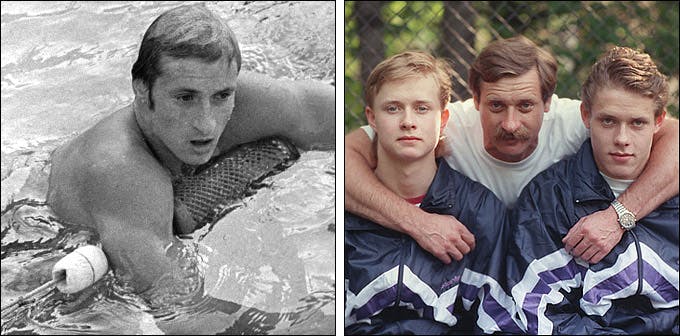
I don’t think it’s unreasonable for people to say, ‘I wouldn’t have done what Bure did,’ but it’s also a hard thing to judge. The factors involved were so different from anything us, the masses, ever have had to contemplate.
In many ways, this makes Bure one of the first of the modern players, the player who really did see hockey as his job. His athletic abilities were his skills. Imagine the resume he would write in 1998:
Skills: fast skating, goal scoring.
Employment history: Vancouver Canucks, CSKA
Achievements: multiple career hat tricks, two 60-goal seasons, a 58-goal season, twice more than 100 points…
If he were a visual effects animator, with a comparable resume, employers would be falling down to hire him. In the curious world of sports contracts, it didn’t work that way. But player were starting to understand this.
Does that suck? Does that take the fun out of sports? It sure does. But do we stop watching? No, we don’t. We carry on. We make judgements on the skills of other players. We assess them on all sorts of measure, both perceived and real. Life moves along.
And so Pavel Bure has returned to Vancouver, apparently forgiven.
It’s said that for so long, he was sure that fans in Vancouver would be upset with how he left. Perhaps he recognized how he had blown the cover off of the perception of professional sport as pure and for its own sake, that he had revealed the new paradigm of hockey player as employee. Perhaps not. What he did know is that he had removed himself from a place that was enamored with his skills. The team’s success was very closely tied to his abilities. And he walked out on them.
It did stick in the gut. Many still feel that pain. But it seems most others have pushed aside whatever animosity that might have existed. Our hero is back and he is forgiven. The reasons don’t seem to matter; all we have is the best player to ever skate for the home team and he wants to be here.
Recent articles from Patrick Johnston

